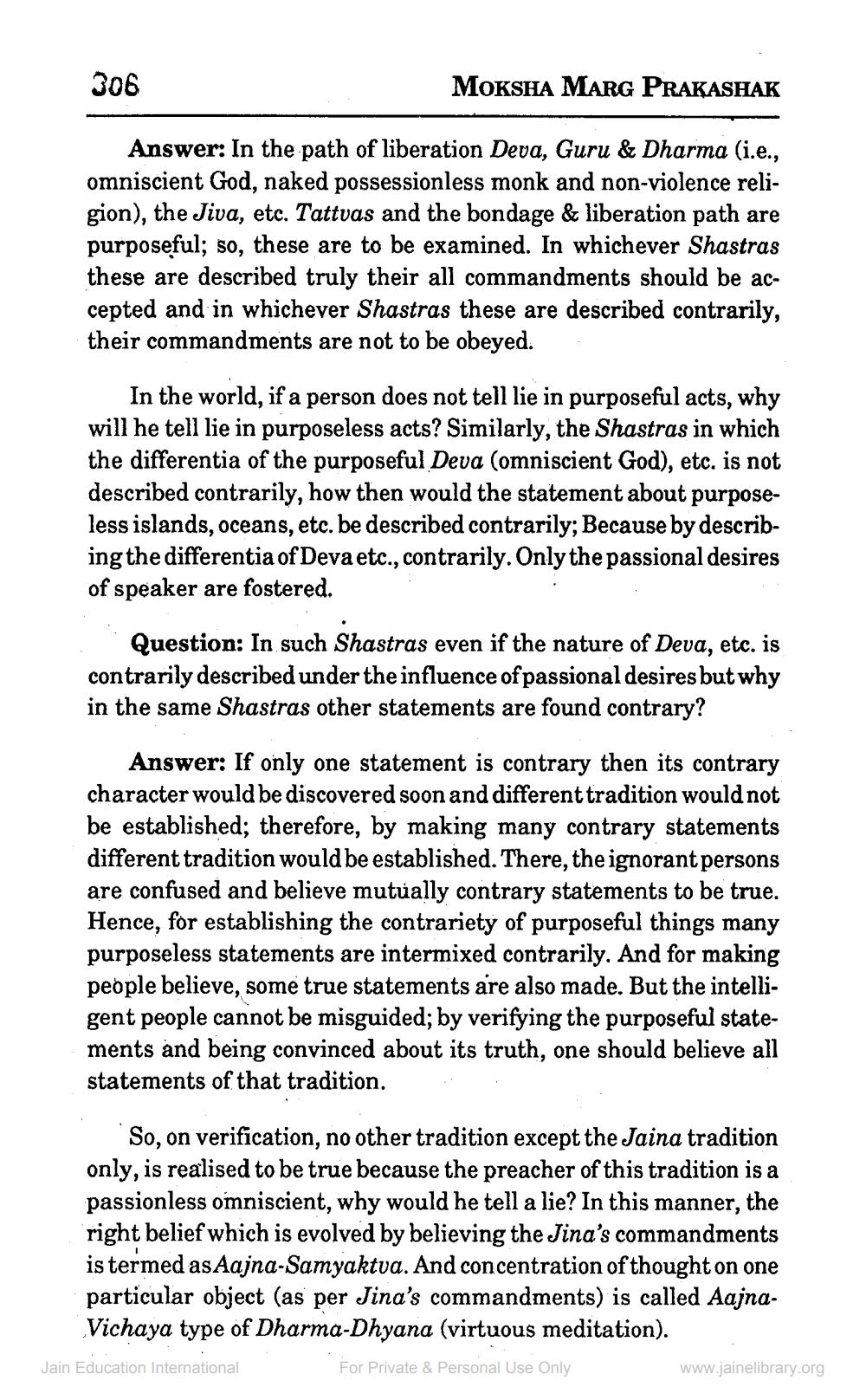________________
306
MOKSHA MARG PRAKASHAK
Answer: In the path of liberation Deva, Guru & Dharma (i.e., omniscient God, naked possessionless monk and non-violence religion), the Jiva, etc. Tattvas and the bondage & liberation path are purposeful; so, these are to be examined. In whichever Shastras these are described truly their all commandments should be accepted and in whichever Shastras these are described contrarily, their commandments are not to be obeyed.
In the world, if a person does not tell lie in purposeful acts, why will he tell lie in purposeless acts? Similarly, the Shastras in which the differentia of the purposeful Deva (omniscient God), etc. is not described contrarily, how then would the statement about purposeless islands, oceans, etc. be described contrarily; Because by describing the differentia of Deva etc., contrarily. Only the passional desires of speaker are fostered.
Question: In such Shastras even if the nature of Deva, etc. is contrarily described under the influence of passional desires but why in the same Shastras other statements are found contrary?
Answer: If only one statement is contrary then its contrary character would be discovered soon and different tradition would not be established; therefore, by making many contrary statements different tradition would be established. There, the ignorant persons are confused and believe mutually contrary statements to be true. Hence, for establishing the contrariety of purposeful things many purposeless statements are intermixed contrarily. And for making people believe, some true statements are also made. But the intelligent people cannot be misguided; by verifying the purposeful statements and being convinced about its truth, one should believe all statements of that tradition.
So, on verification, no other tradition except the Jaina tradition only, is realised to be true because the preacher of this tradition is a passionless omniscient, why would he tell a lie? In this manner, the right belief which is evolved by believing the Jina's commandments is termed as Aajna-Samyaktva. And concentration of thought on one particular object (as per Jina's commandments) is called Aajna
Vichaya type of Dharma-Dhyana (virtuous meditation). Jain Education International For Private & Personal Use Only
www.jainelibrary.org




